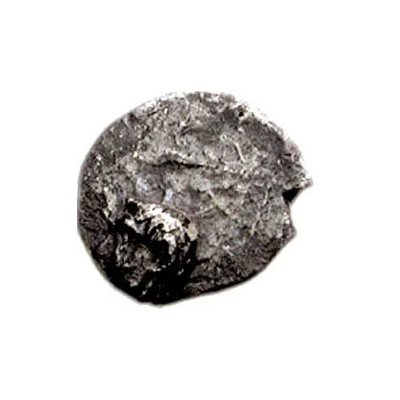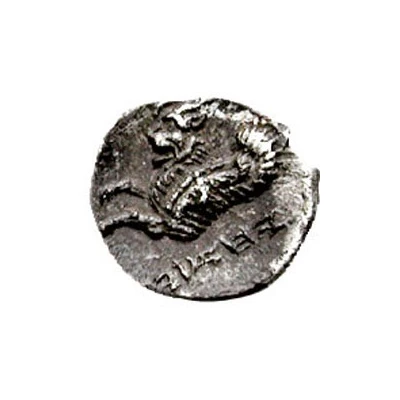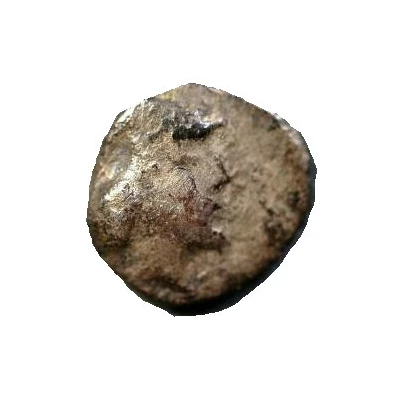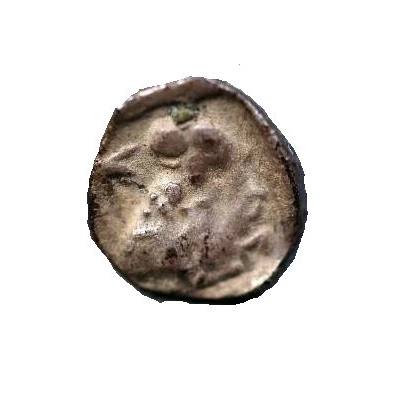


½ Ma'ah-Obol - Hezekiah Judea 539 BC - 332 BC
| Silver | 0.21 g | - |
| Issuer | Satrapy of Yehud Medinata (Achaemenid Satrapies) |
|---|---|
| Type | Standard circulation coin |
| Years | 539 BC - 332 BC |
| Value | ½ Ma'ah-Obol = 1⁄48 Shekel |
| Currency | Shekel (539-332 BCE) |
| Composition | Silver |
| Weight | 0.21 g |
| Thickness | 9 mm |
| Shape | Round (irregular) |
| Technique | Hammered |
| Demonetized | Yes |
| Updated | 2024-10-10 |
| Numista | N#27305 |
|---|---|
| Rarity index | 100% |
Reverse
Lynx with inscription of YHZQYH (Hezekiah) written in Paleo-Hebrew to the left
Lettering: חזקיהו
Translation: Hezekiah
Comment
There are two varieties of coins of Hezekiah, onegiving his title of Satrap. It is likely this is
the same Hezekiah who as High Priest of the Jews
offered friendship to Ptolemy I of Egypt after his
conquest of Judea. Josephus mentions Hezekiah
as being sixty years old at the time of Ptolemy,
so it is possible that he served as both a Persian
satrap and, later, as a subordinate to Ptolemy.
Interesting fact
One interesting fact about this coin is that it was used as a form of currency during the reign of King Hezekiah in ancient Judah, which was a significant time in Jewish history as it marked the transition from a monarchy to a province of the Achaemenid Empire. Despite being made of silver, the coin is relatively small and lightweight, weighing only 0.21 grams. This suggests that it may have been used for everyday transactions, such as buying goods and services, rather than being a high-value coin used for large purchases or trade.

